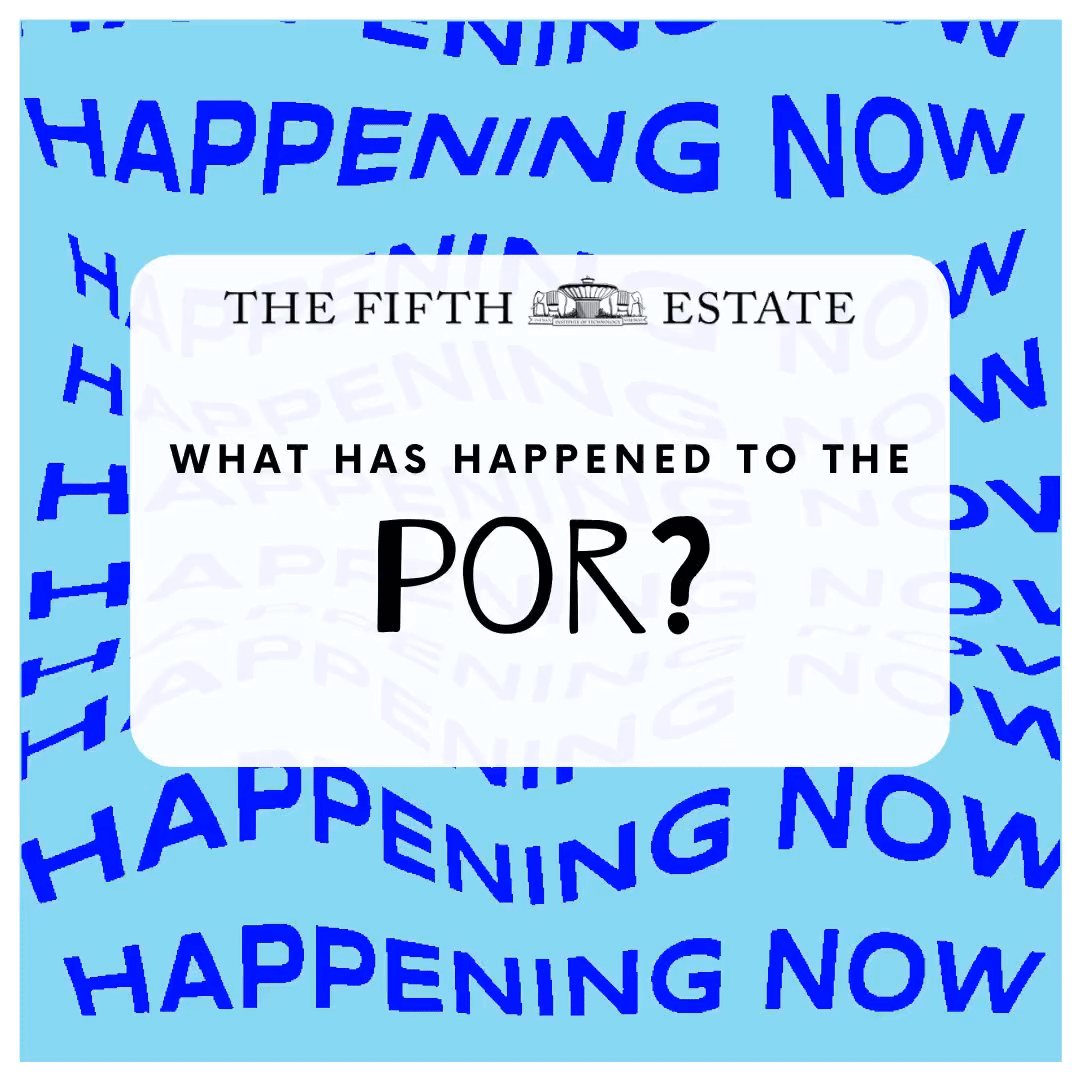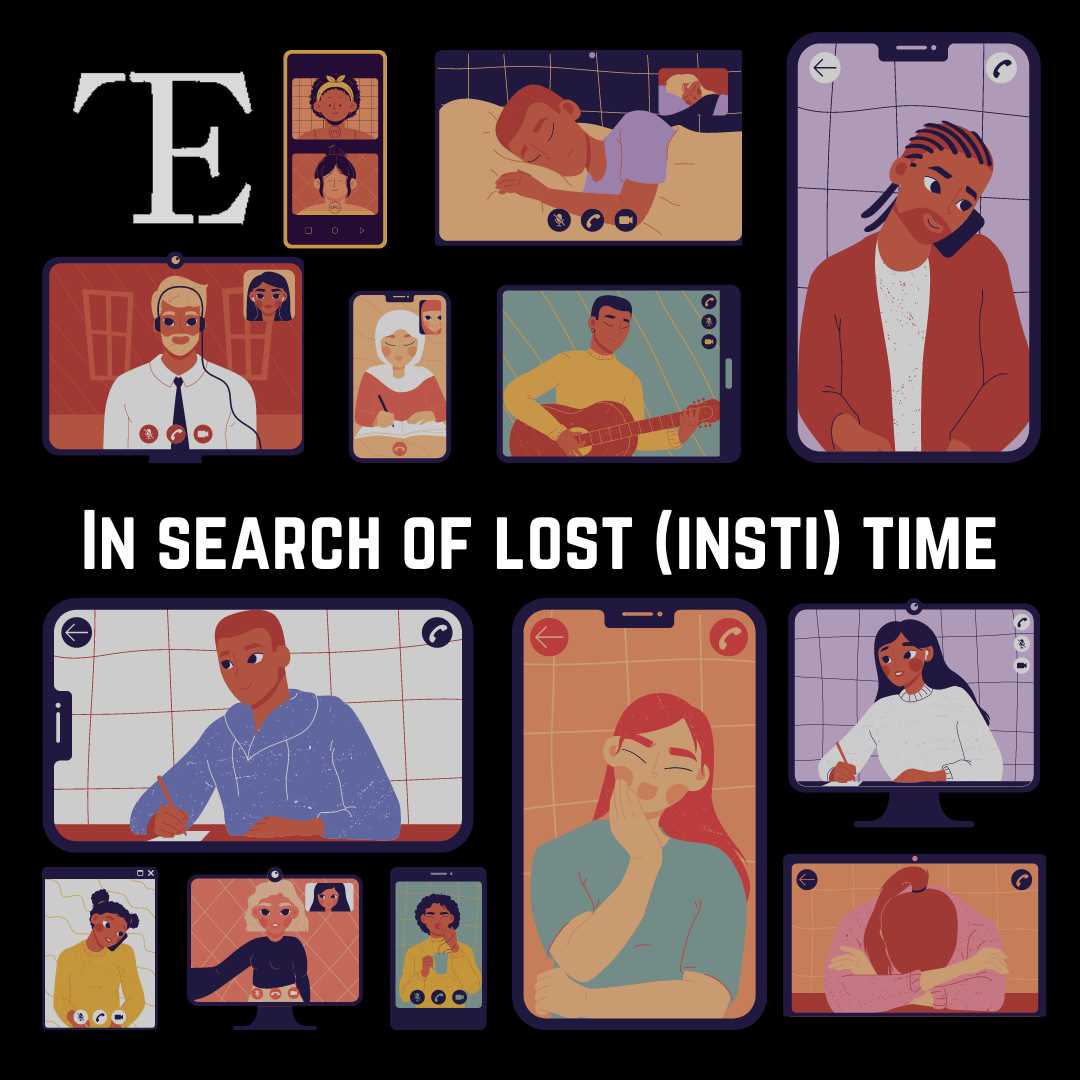Design by Hardhik Pinjala
Edited by Anna Dominic
A couple of weeks after we left insti in a flurry of chaos, at a time when most of us were sleeping our days away and some of us were studiously catching up on acads, came our deliverance – in the form of an avalanche of s-mails. They kept us preoccupied for many a day and night, and most importantly, gave us something to look forward to. Yes, I’m talking about PoRs – from Saarang to CFI and everything in between, that had us joining innumerable WhatsApp groups and attending (virtual) fundae sessions and filling out apps in a feverish haze.
It was something that brought us back to our senses and shone as a faint beacon of hope for the future. But weeks turned into months, and now here we are, in Lockdown 5.0, facing the looming possibility of an online semester.
It will probably be months before we can set foot in insti again, and where does that leave all our events and fests?
Timelines have been completely messed up. Events might have to be pushed pretty far back, maybe even into next year’s odd sem- or god forbid- be held virtually. Either way, it’s almost impossible for any of them to take place on the same scale as before.
Speaking of virtually, let’s look at what this new normal for communication entails in the team bonding scenario. Up until now the PoR process this year has mostly been the same as always – in-person interviews have transformed into phone calls, but that’s about it. Usually, proper team meetings began with the fresh start of the new sem. Teams got together and became closer as they ideated, worked and learned together.
But right now, we’re in an uncertain world. If the next semester does start online, then meetings are no exception. Cue the triumphant rise of Google Meets and Zoom.
It’s a bit depressing, meeting your new colleagues for the first time over video call. It’s bad enough to sit in awkward silence in a pixelated reality, but what’s worse is that you can’t even look at everyone at the same time. So you end up gazing at yourself, shifting your angle and trying to make sure you don’t look like a potato. And then somehow, inevitably, the whole thing turns into an excruciating game of figuring out whose side the TV noise is coming from and muting them.
So it’s not exactly the epitome of productivity. Yet there is something to appreciate about showing an honest, unaffected side of ourselves as we try to move forward together through this unfamiliar landscape that brings us closer in an unexpected way. And of course, if we’re ready to take a gamble that will either make or break friendships, there’s always the one and only game that we all have a love-hate relationship with – Ludo King.
Needless to say, socialising is not the only aspect of a PoR. What about the learning curve, the work standards and the experience we gain from the whole process? It may be true that some facets like ideation processes have taken a hit, since a WhatsApp group chat is no match for the sheer energy of a bunch of people actually sitting down together and pitching ideas back and forth.
On the other hand, it is also true that we now have more time than ever to think things through and come up with more innovative ideas. As they say, there are two sides to every coin. Everyone has different expectations of their team members below them – some higher than before, some lower. In the end I think the amount of care and effort that is put in boils down to how each of those members, as individuals, take the situation in stride.
I would say that this situation is nothing more and nothing less than an opportunity. Isn’t the point of a PoR to learn how to tackle challenges? And here we are, presented with a challenge we’ve never faced before. And it seems to me that we’re coping pretty well. Quite a few systems have already been restructured to better apply to the current state of affairs. Some of us are already learning a lot of new things, like how to organise live shows and webinars. It may be difficult to see the point of all this, but how we put fight is more important than the outcome.
The events we are preparing for might or might not be a lost cause, but the work-from-home skills we are picking up could become more relevant than we can imagine in a post-COVID world.
Multiple studies have surprisingly shown that people are significantly more productive when allowed to work remotely. Organizations around the world are discovering exactly how much time is wasted by things like commuting and even- amazingly- lengthy meetings and other procedures that have been taken for granted until now.
The way we work will be permanently altered by these insights. At the moment, the forced isolation does take a mental and emotional toll on us. But in the virus-free future, a few days off each week for working remotely could be the new normal. These are only predictions, but one thing is for sure – some aspects of life will never be the same as before.
What I want to say is that navigating through this global crisis is simply an evolution of sorts. When the storm has passed and when we step out into the sunshine again, I believe we will be better adapted to face a transformed world.




